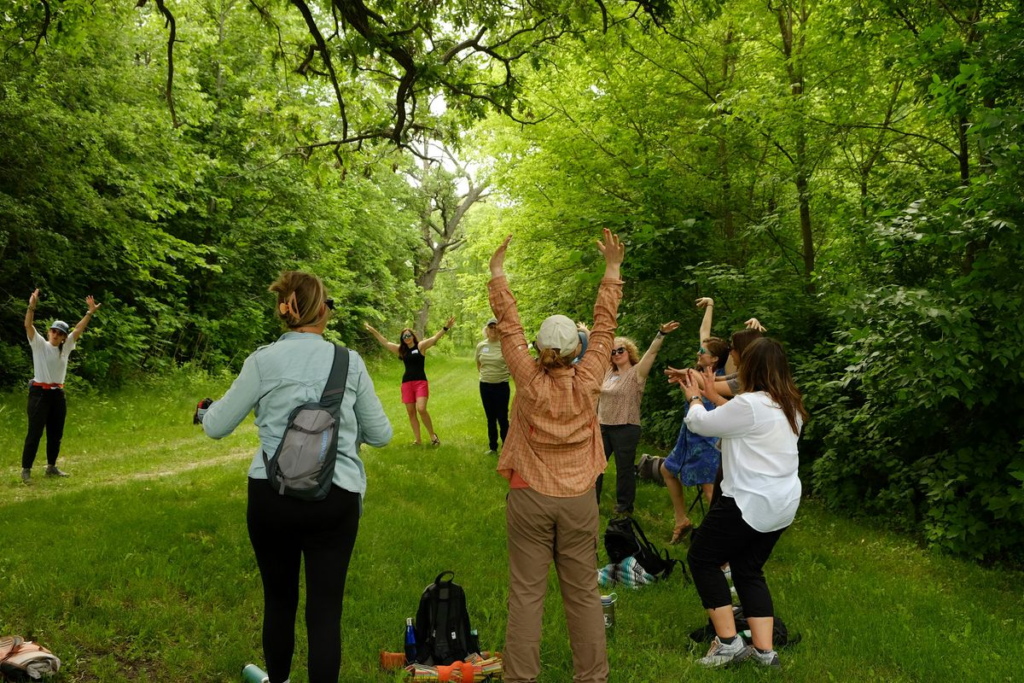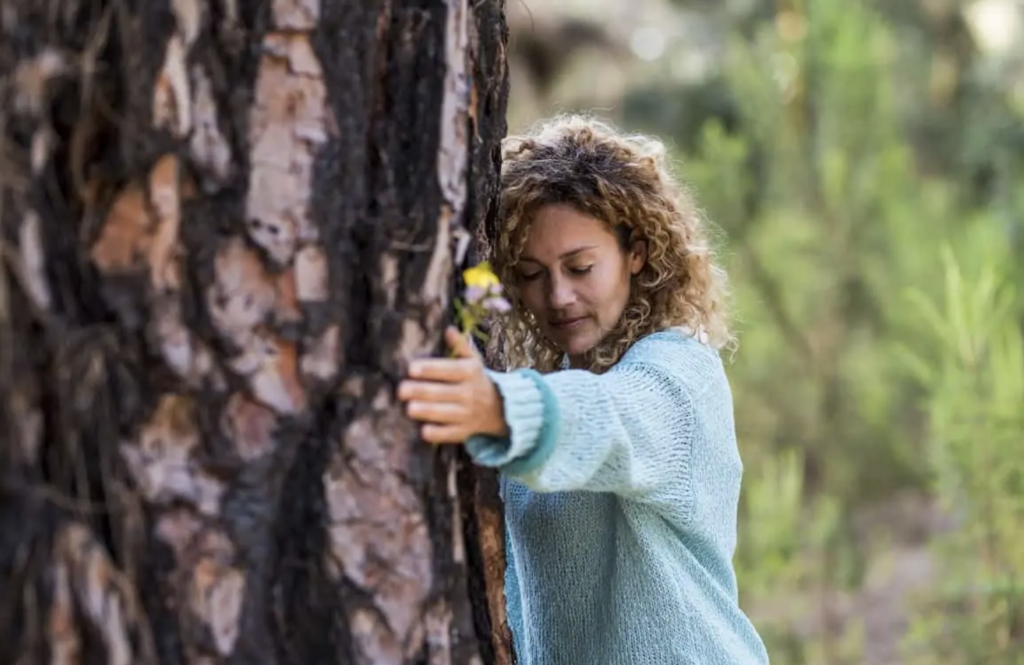Urban ecotherapy mental health is becoming a popular approach to improve mental well-being by using nature in American cities. With rising rates of anxiety, depression, and stress in urban populations, researchers, health professionals, and city planners are exploring how green spaces, outdoor programs, and nature-based interventions can help. This article explains what urban ecotherapy mental health means, its benefits, accessibility, and the policies that can support its growth.
What Is Urban Ecotherapy Mental Health?
Ecotherapy is the use of nature as a form of therapy. When we talk about urban ecotherapy mental health, it refers to nature-related activities and programs within city settings designed to reduce stress, improve mood, and support emotional and cognitive well-being. This includes spending time in parks, community gardens, urban forests, nature trails, and other green areas.
Examples of urban ecotherapy mental health activities include:
- Spending time in city parks, urban forests, or waterfronts
- Gardening or community farming within neighborhoods
- Guided nature walks or forest bathing
- Incorporating green infrastructure like rooftop gardens, green walls, and street trees
- Nature-based group therapy or social prescribing, where doctors recommend nature activities as part of treatment

Why Urban Ecotherapy Mental Health Matters
City life often comes with many challenges: noise, pollution, crowded spaces, and social isolation. These factors contribute to increasing mental health problems. Urban ecotherapy mental health offers several benefits:
- Reducing stress and anxiety by lowering cortisol levels and promoting relaxation
- Improving mood and decreasing symptoms of depression
- Enhancing attention, memory, and creativity
- Fostering social connections through community gardens and group activities, which helps reduce loneliness
- Supporting physical health by encouraging outdoor activities that improve cardiovascular health and overall fitness
Evidence of Effectiveness in U.S. Cities
Numerous studies support the positive effects of urban ecotherapy mental health in American cities. For instance, office workers in New York City report feeling less anxious and more relaxed after visiting parks. Community gardening programs in Chicago’s low-income neighborhoods have been linked to increased life satisfaction and lower depression rates. Veterans in the San Francisco Bay Area who participate in nature walks show improvements in sleep and mood regulation. In Los Angeles, residents with access to green rooftops and walking paths demonstrate more physical activity and less stress.
Research generally shows that nature exposure is most effective when it is frequent, takes place in high-quality green environments, and involves structured or guided activities rather than just passive exposure. Still, some studies have limitations such as small sample sizes or short durations, so more long-term research is needed.
Barriers to Access
Despite the benefits, not everyone has equal access to urban ecotherapy mental health interventions. Some common barriers include:
- Geographic inequality: Many low-income or minority neighborhoods have fewer parks and green spaces. This creates what some call “green deserts,” where access to nature is limited.
- Time and cost: People working multiple jobs or with limited transportation may find it difficult to visit green spaces regularly.
- Safety concerns: Crime, traffic, pollution, or poor lighting can make parks feel unsafe, discouraging use.
- Awareness and cultural barriers: Some communities may lack information about nature-based programs or may have cultural differences that affect participation.
- Maintenance and quality: Poorly maintained parks with trash or vandalism reduce the therapeutic benefits of nature.
- Policy and funding gaps: Without dedicated public budgets or supportive policies, many nature-based mental health programs rely on temporary grants or volunteer efforts.
Policy and Planning for Urban Ecotherapy Mental Health
For urban ecotherapy mental health to become a common and effective part of mental health care, it must be supported by thoughtful policies and planning. This includes:
Integrating Nature in Urban Planning
Cities can include green infrastructure requirements in zoning laws, such as mandating parks, green roofs, and street trees in new developments. Creating green corridors that connect parks and neighborhoods also improves accessibility. Maintaining safety and ecological health in these spaces is important for encouraging use.
Health System Integration and Social Prescribing
Some health systems have started programs where doctors prescribe time in nature to patients dealing with stress or depression. Expanding these social prescribing models, including insurance support and training for healthcare providers, can help make ecotherapy a routine part of mental health treatment.
Ensuring Equity and Community Participation
Prioritizing green space development in underserved neighborhoods helps close the access gap. Engaging communities in the planning, design, and upkeep of green spaces ensures they meet local needs and encourage regular use. Programs should also be affordable and easy to reach by public transport.
Funding, Research, and Monitoring
Sustained funding from local, state, and federal governments is crucial to support nature-based mental health programs beyond one-time grants. More research, especially long-term studies and randomized controlled trials, is needed to better understand effectiveness and best practices. Tracking the use and outcomes of these programs helps improve them over time.
Success Stories and Examples
Several U.S. cities provide examples of successful urban ecotherapy mental health initiatives:
- Philadelphia’s project to convert vacant lots into gardens and green spaces has reduced stress and built community bonds.
- San Francisco offers guided hikes and volunteer programs connecting residents to nature, especially youth.
- Atlanta’s BeltLine project transforms old railway corridors into green trails, encouraging walking and social interaction.
- Chicago’s Nature Rx program allows physicians to prescribe nature time, linking patients with local parks and groups.
These cases show that when green spaces are accessible, safe, and supported by programs, they can greatly improve mental well-being.

Challenges and Future Needs
Despite growing interest, challenges remain. Measuring outcomes consistently is difficult due to varied study designs and outcomes used. Urban land scarcity and competing development priorities can limit space for new green areas. Climate change introduces maintenance challenges, such as drought and storm damage. Finally, programs must be culturally sensitive and adaptable to the diverse populations in cities.
Recommendations
To support urban ecotherapy mental health effectively:
- Adopt policies that require green spaces in urban planning and protect existing parks.
- Increase public funding dedicated to nature-based mental health programs.
- Promote social prescribing and train healthcare providers on ecotherapy options.
- Focus on equitable access by prioritizing underserved areas and removing barriers like safety concerns and transportation.
- Invest in rigorous research and program evaluation.
- Encourage community involvement to ensure programs reflect local culture and needs.
Conclusion
Urban ecotherapy mental health offers promising benefits for city dwellers struggling with stress, anxiety, and depression. Nature exposure in well-designed green spaces can improve mood, cognitive function, and social connections. However, to realize its full potential, access must be fair and widespread, programs well funded, and policies supportive. Integrating urban ecotherapy mental health into public health and city planning can make American cities healthier and more resilient places for everyone.
If you or someone you know is dealing with mental health issues, ecotherapy can be a helpful complement but should not replace professional treatment.
Do Follow USA Glory On Instagram
Read Next – Designer Droughts: How Landscaping Worsens Water Crises






